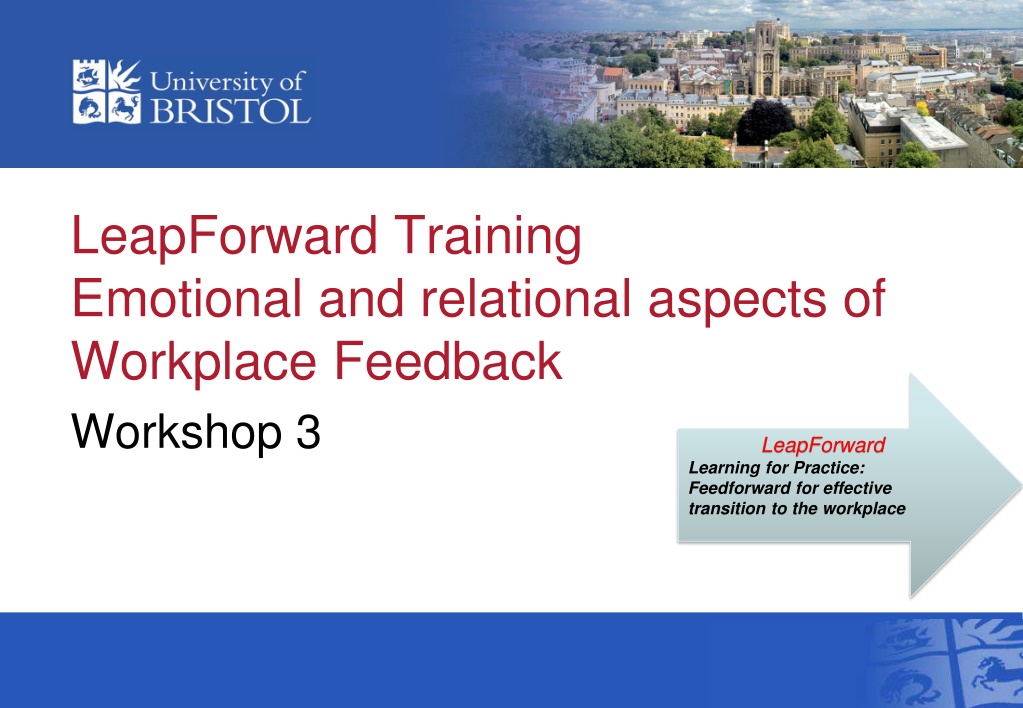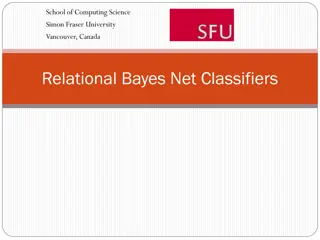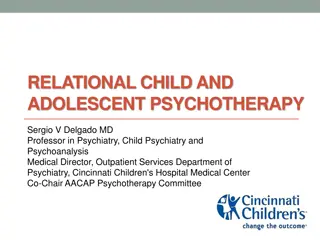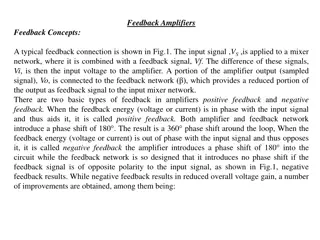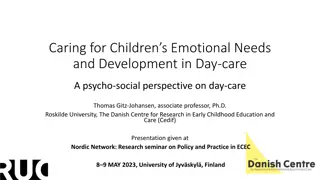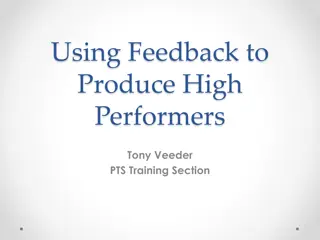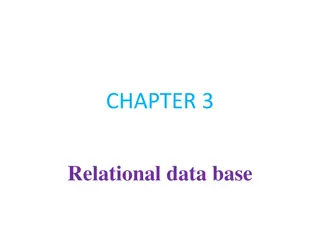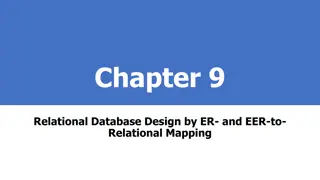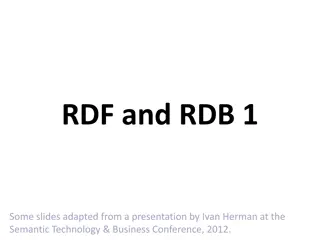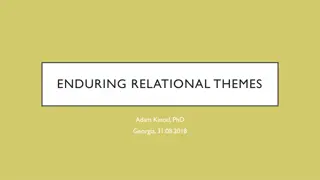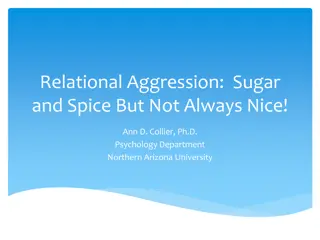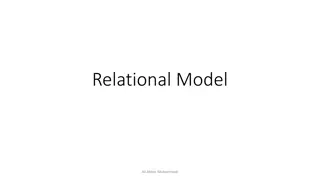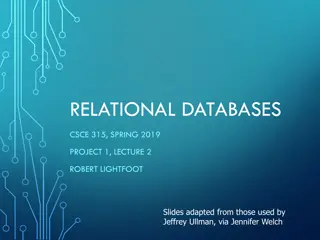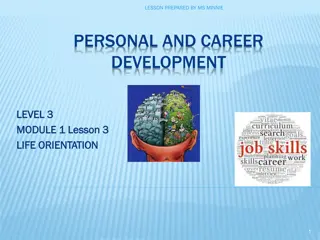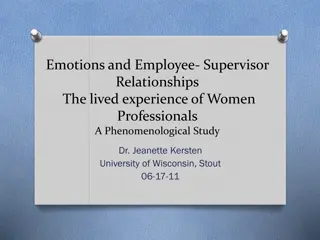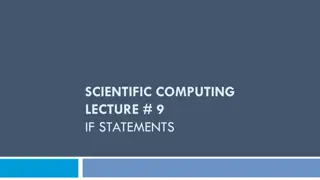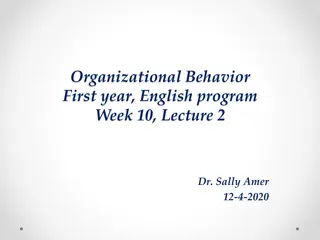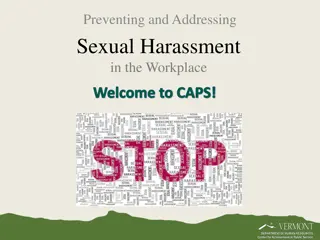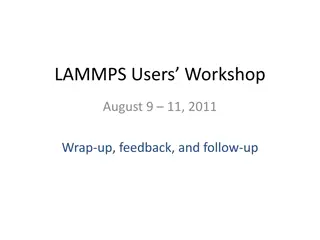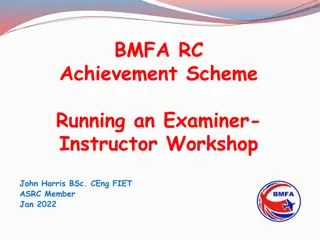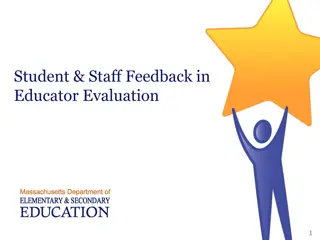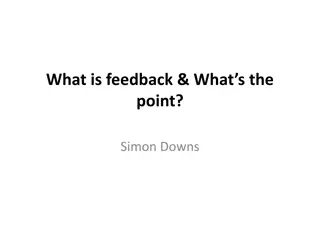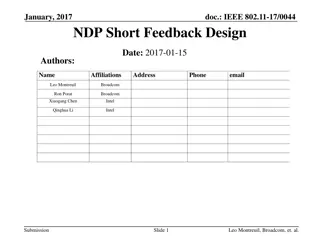Emotional and Relational Aspects of Workplace Feedback Workshop
Explore the emotional and relational aspects of feedback in a workplace setting through the LeapForward Training program. Discover key learning outcomes, challenges, and practical strategies for providing effective feedback. Understand the importance of emotional intelligence and empathy in feedback processes for a successful transition to the workplace.
- Workplace Feedback
- Emotional Intelligence
- Relational Aspects
- Feedback Training
- Transition Strategies
Download Presentation

Please find below an Image/Link to download the presentation.
The content on the website is provided AS IS for your information and personal use only. It may not be sold, licensed, or shared on other websites without obtaining consent from the author. Download presentation by click this link. If you encounter any issues during the download, it is possible that the publisher has removed the file from their server.
E N D
Presentation Transcript
LeapForward Training Emotional and relational aspects of Workplace Feedback Workshop 3 LeapForward Learning for Practice: Feedforward for effective transition to the workplace
2 LeapForward Training Resources If you choose to use these resources in your own teaching, please attribute the LeapForward project, University of Bristol Except where otherwise indicated, this work is licensed under a https://creativecommons.org/licenses/by-nc/4.0/ This license allows reusers to distribute, remix, adapt and build upon the material in any medium or format for noncommerical purposes only, and only so long as attribution is given to the creator If you have queries about the resources, please contact Sheena.Warman@bristol.ac.uk
3 LeapForward Training: Workshop Map Workshop 1 Workshop 2 Workshop 3 Emotional & relational aspects of feedback Practicalities of Workplace Feedback Understanding Feedback Taking Action
4 Learning outcomes (Review key learning points from workshops 1 & 2) Identify emotional and relational aspects of workplace feedback dialogue Identify emotional and relational challenges associated with written feedback processes Use Hattie and Timperley's feedback model to provide written feedback comments on a peer's work
13 Emotional and relational aspects Consider the quotes on the following slides: do they resonate with your own experiences? Or not?
14 Feedback is an emotional process and it seems like in certain formal ways of getting feedback, we remove the emotionality from the process itself, or we just undervalue it, and it s not simplistic STUDENT I guess the very idea of reflecting is really personal and if you personally feel like it was great and you want to put a smiley face, then I guess that s like you should be able to STUDENT Emotional needs of students are important It s very easy to suddenly feel really like overwhelmed whereas if you re the sort of person whose able to brush it off and think actually no, I m doing okay . That s all I can do then you can cope with fine but if you re constantly kind of questioning you re abilities, it s a bit like yes it can be a bit difficult STUDENT Like a nice chat with a clinician and you get to know them as well, so I like that when they sit down but some people are like um god it s way too like stressful STUDENT LeapForward Learning for Practice: Feedforward for effective transition to the workplace
15 I think what I ve always found more interesting and useful is like a discussion like a really open, honest one STUDENT For me, the key to it is building some sort of relationship with the individual and it s very difficult to give some people feedback until they re comfortable with you and you re comfortable with them and that s the difficult thing to do STAFF Relationships are important to good feedback: trust, honesty, openness Where there s been an honest and open relationship with the [supervisor], so that they can be honest and open about how the students functioned in that placement and what the areas to develop are STUDENT LeapForward Learning for Practice: Feedforward for effective transition to the workplace
16 I think there s always something to help them with or help them to move on with in some waySTAFF I like it when they feel that I ve kept them buoyed up and not sort of losing them STAFF Practitioner as life long learner and coach is important for role modelling I see that role as being that funnel for feedback especially when it s good but also when it s bad to make sure that it s not just a natter behind the person s back but actually that information gets fed back to them in a constructive fashion and that will modify their behaviour in the future STAFF LeapForward Learning for Practice: Feedforward for effective transition to the workplace
17 Why do students not always like feedback? Triggers that block feedback Truth triggers the feedback is wrong, unfair, unhelpful, blind spots Relationship triggers I can t hear this feedback from you Identity triggers the feedback is threatening and I m off balance Stone and Heen (2015) Thanks for the Feedback
18 Activity 1: Evaluate feedback examples Review and evaluate the background information and comments on participant activity sheet for Activity 1 1. Discuss why these sentences may have triggered an unhelpful emotional response 2. How could they have been rephrased?
19 Written feedback Written feedback endures, and can be interpreted differently by different students to be meaningful, it has to be engaged with. Emotions matter! If verbal feedback has been effective during a work placement, written feedback comments shouldn t come as a surprise Pay attention to tone & language feedback is pointless if not engaged with by learner
20 Written feedback Normal helpful feedback rules apply: Timely Accurate Objective and non-judgemental Specific and descriptive Balanced and supportive Achievable plan
21 Written feedback Use a structure for comments e.g. split into to commend and to consider Draw on the language in the learning outcomes, marking criteria, and any learner self-assessment/reflections Avoid words like good , adequate , poor , unless supported by examples
22 Written feedback Encourage dialogue Use questions within your feedback to prompt students to think (although this is perhaps best avoided with more critical aspects of feedback) Consider asking for student reflections/self- assessment/requests for specific feedback as part of the process Consider asking students to submit a plan in response to feedback Foster a longitudinal approach to feedback/feedforward
23 Activity 2: Written feedback Work in pairs; label yourselves A and B Each pair (don t start yet!) Draw a recognisable example of a xxxx Use shading and/or colour to enhance your drawing Review the work when complete and provide written feedback You will have 1 minute for your drawing You will then have 2 minutes to give some written feedback You will then have 1 minute to note your plan for next time
24 How did that go? What went well for you as artist or tutor? What did you find difficult? What might you do differently in writing feedback next time?
25 Sociocultural perspectives on feedback It is increasingly recognised that the local, institutional and professional cultures play a key role in the success (or otherwise) of feedback processes For a review, see Ramani et al (2019)
26 Learning outcomes (Review key learning points from workshops 1 & 2) Identify emotional and relational aspects of workplace feedback dialogue Identify emotional and relational challenges associated with written feedback processes Use Hattie and Timperley's feedback model to provide written feedback comments on a peer's work
27 Summary & close One take home message Attendance/sign-in arrangements Workshop feedback form Thank you!
28 References and resources Boud, D. & Molloy, E., Eds (2013) Feedback in higher and professional education: understanding it & doing it well New York: Routledge Hattie and Timperley (2007) The Power of Feedback. Review of Educational Research 77, 81-112 Dweck, C. (2017) Mindset:Changing the way you think to fulfil your potential. Robinson, London. Dweck, C. (2006). Mindset : The new psychology of success. Random House, New York Dweck, C. (2000) Self theories: their role in motivation, personality and development Psychology Press, Hove Ramani, S. et al (2019) Feedback redefined: Principles and Practice. J Gen Intern Med 34 (5): 744-9 Stone, D. and Heen, S. (2015) Thanks for the Feedback, Penguin LeapForward project Resource Toolkit: We have developed a resource toolkit containing a summary of key theoretical frameworks, practical aides, guidelines, and models. This resource is intended to supplement the LeapForward training packages, and is available for staff to consult to support feedback and feedforward activities and practices
29 PARTICIPANT ACTIVITY SHEETS
30 Participant Activity Sheet Activity 1 A student emails the Unit lead to say that they have been upset by feedback received on a rotation. They feel it is unwarranted, and are concerned that the staff member has mixed them up with another student. You discuss the feedback with the staff; the whole team were involved in writing the feedback and are happy that it relates to the correct student. On meeting with the student, it turns out that there were family circumstances that meant she was a little distracted during the week, although she didn t think it had outwardly impacted on her work. The sentences below were the ones that particularly upset her. 1. Discuss why these sentences may have triggered an unhelpful emotional response 2. How could they have been rephrased? Your knowledge of [xxx] along with its application was poor, and below what would be expected at this point. You were unable to produce a single possible differential when examining a [xxxxx] with a bad eye. You occasionally gave the impression that you were more interested in your mobile phone than in clinical discussions
31 Participant Activity Sheet Activity 1: Debrief Consider the role of emotions in the feedback process what part do they play? How would you feel if you received this feedback? What could help support the student to participate effectively in the feedback process?
32 Participant Activity Sheet Activity 2: Written feedback Work in pairs; label yourselves A and B Each pair (don t start yet!) Draw a recognisable example of a xxxx Use shading and/or colour to enhance your drawing Review the work when complete and provide written feedback You will have 1 minute for your drawing You will then have 2 minutes to give some written feedback You will then have 1 minute to note your plan for next time
33 Participant Activity Sheet Activity 2: Debrief Consider your feedback from your tutor How was that experience and how did you feel o As tutor? o As artist?
34 FACILITATORS NOTES
35 Facilitators notes: Activity 1 Your knowledge of [xxx] along with its application was poor, and below what would be expected at this point. Probably only needs one of these parts of the sentence; or rephrase as needs improvement. Activity 1 A student emails the Unit lead to say that they have been upset by feedback received on a rotation. They feel it is unwarranted, and are concerned that the staff member has mixed them up with another student. You discuss the feedback with the staff; the whole team were involved in writing the feedback and are happy that it relates to the correct student. On meeting with the student, it turns out that there were family circumstances that meant she was a little distracted during the week, although she didn t think it had outwardly impacted on her work. The sentences below were the ones that particularly upset her. 1. Discuss why these sentences may have triggered an unhelpful emotional response 2. How could they have been rephrased? You were unable to produce a single possible differential when examining a [xxxxx] with a bad eye Change a single possible to any You occasionally gave the impression that you were more interested in your mobile phone than in clinical discussions Whilst gave the impression helps here, it would have helped to say were distracted by rather than more interested in
